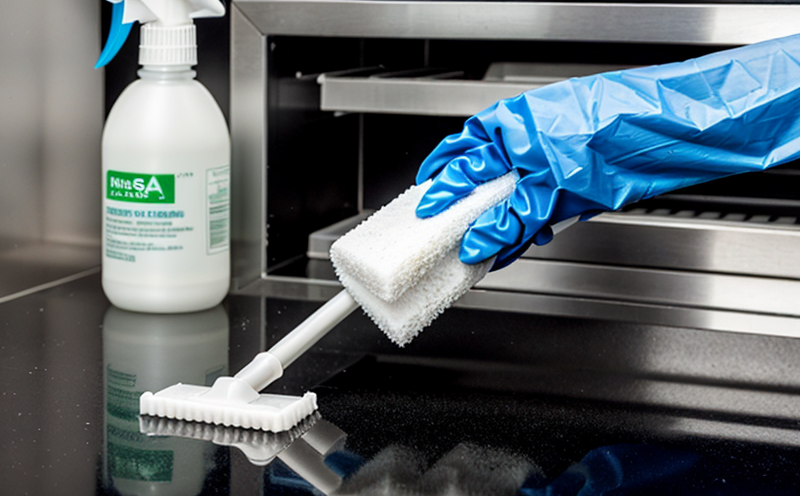ASTM E2315 Rapid Kill Time Testing of Antimicrobial Plastic Surfaces
The ASTM E2315 standard provides a method to determine the rapid kill time (RKT) of antimicrobial agents on plastic surfaces. This test is crucial for ensuring that plastics used in hygiene and sanitation applications effectively kill pathogens within specified times, enhancing safety standards.
The RKT testing measures how quickly an antimicrobial agent eliminates microorganisms from a surface. The procedure involves exposing the plastic specimen to a standardized inoculum of microorganisms under controlled conditions. After exposure, samples are incubated at specific temperatures to observe microbial growth or death. The rapid kill time is determined based on when 99.9% reduction in viable microbial count occurs.
Specimen preparation for this test involves selecting representative areas of the plastic surface. Specimens should be free from contaminants and represent the intended use application. Standardized inoculum, typically a mixture of bacteria or fungi, is applied to the prepared specimen. The specimens are then incubated at appropriate temperatures (usually 30°C) to allow microbial growth.
The test apparatus includes an incubator for maintaining temperature control during testing, and a photometer or other suitable device for measuring turbidity or optical density changes in the inoculum. Reporting involves documenting rapid kill times for different antimicrobial treatments on the plastic surface, along with any observed residual activity that might persist beyond immediate contact.
This method is particularly important for sectors like healthcare, food safety, and consumer products where hygiene and sanitation are paramount. By ensuring compliance with ASTM E2315 standards, manufacturers can demonstrate their products' effectiveness in reducing microbial risks.
Applied Standards
The ASTM E2315 standard is widely recognized for its rigor and applicability to a variety of antimicrobial treatments on plastic surfaces. It aligns with international standards such as ISO 20743, which also addresses the efficacy of antimicrobial agents.
- ASTM E2315: Standard Practice for Determining Rapid Kill Time of Antimicrobial Agents on Plastic Surfaces
- ISO 20743: Performance requirements and test methods for surfaces with inherent or added antimicrobial activity
These standards provide a framework for consistent testing across industries, ensuring that products meet the highest safety and efficacy standards.
Industry Applications
| Industry | Purpose of Testing |
|---|---|
| Healthcare | Ensuring surfaces are effectively antimicrobial, reducing risk of infection. |
| Food Safety | Verifying plastic packaging and equipment reduce bacterial contamination during processing. |
| Consumer Products | Guaranteeing personal hygiene products like toothbrush holders or hand sanitizer dispensers are safe for use. |
- Hospitals: Ensuring medical equipment surfaces kill pathogens rapidly to prevent cross-contamination.
- Cafeterias and food processing plants: Verifying packaging and utensils eliminate bacteria effectively, ensuring food safety.
- Public spaces: Testing hand sanitizer dispensers for rapid kill time ensures they are effective against common pathogens.
The ASTM E2315 testing plays a critical role in these industries by validating the antimicrobial efficacy of plastic surfaces and products, thus enhancing hygiene standards across various sectors.
Eurolab Advantages
At Eurolab, we offer comprehensive ASTM E2315 rapid kill time testing services tailored to meet your specific needs. Our experienced team ensures precise specimen preparation and standardized inoculum application, providing accurate test results.
- State-of-the-art equipment for controlled temperature incubation and measurement of optical density changes.
- Detailed reporting that includes rapid kill times under various conditions, ensuring compliance with international standards.
- Absolutely no cross-contamination between samples, guaranteeing reliable data.
We provide a range of testing services to support your product development and quality assurance processes. Our expertise in polymer & plastics testing ensures that you can trust our results for critical hygiene applications.





